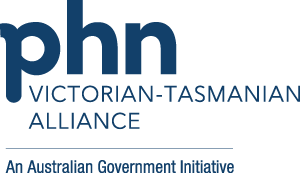What is the NDIS?
The National Disability Insurance Scheme (NDIS) is the new way of providing support for Australians with disability, their families and carers.
The NDIS will provide about 460,000 Australians under the age of 65 living with a permanent and significant disability with the reasonable and necessary supports they need to live an ordinary life.
The NDIS supports people with disability to build skills and capability so they can participate in the community and employment.
What is responsible for delivering the NDIS?
National Disability Insurance Agency
The NDIS is delivered by the National Disability Insurance Agency (NDIA) which is the independent Commonwealth Government agency responsible for implementing the NDIS nationally.
The NDIA makes decisions about whether someone is eligible to become an NDIS participant and, if so, how much funding they will receive. This is based on legislation called the NDIS Act 2013 which sets out what supports and services are considered reasonable and necessary for the NDIS to fund.
Early Childhood Early Intervention (ECEI) Partners
Early Childhood Early Intervention (ECEI) helps children up to six years of age who have a developmental delay or disability.
ECEI Partners employ ECEI Coordinators who help children and their families access supports and services that are tailored to the child’s needs. ECEI Coordinators will also help with connection to other services such as community health services, playgroups or other activities available in the area.
In Victoria, these partners are:
- Barwon Child, Youth and Family in the Barwon Service Area;
- Latrobe Community Health Service in the Central Highlands, and Wimmera South West Service Areas;
- Link Health and Community in the Inner East Melbourne, Inner Gippsland, Outer East Melbourne, Southern Melbourne, and Outer Gippsland Service Areas;
- Intereach in the Loddon, Goulburn, and Mallee Service Areas;
- Brotherhood of St Laurence in the North East Melbourne, Hume Moreland, Bayside Peninsula, Brimbank Melton, and Western Melbourne Service Areas; and
- Merri Community Health Service in the Ovens Murray Service Areas.
In Tasmania, these partners are:
- Mission Australia in Tasmania’s south east and north west; and
- Baptcare in Tasmania’s north and south west.
Local Area Coordination (LAC) Partners
Local Area Coordination Partners employ Local Area Coordinators (LAC) who help people understand and access the NDIS. They also work with NDIS participants to develop and use their NDIS plan.
For most people aged seven years and older, a LAC will be their main point of contact for the NDIS.
A LAC will connect people with disability to supports, services, activities in their community and other government services. LACs also work in communities to help them become more accessible and inclusive for all people with disability.
In Victoria, these partners are:
- Brotherhood of St Laurence in the North East Melbourne, Hume Moreland, Bayside Peninsula, Brimbank Melton, and Western Melbourne Service Areas.
- Latrobe Community Health Service in the Central Highlands, Ovens Murray, Wimmera South West, Barwon, Inner East Melbourne, Inner Gippsland, Outer Gippsland, Outer East Melbourne, and Southern Melbourne Service Areas.
- Intereach in the Loddon, Mallee, and Goulbourn Service Areas.
In Tasmania, these partners are:
- Mission Australia in Tasmania’s south east and north west; and
- Baptcare in Tasmania’s north and south west.
Visit the NDIS locations page or call 1800 800 110 to find the most up to date ECEI and LAC Partner address and contact details.
Who can access the NDIS?
To access the NDIS in Victoria, a person must live in an area where the NDIS is available. In addition, they must also:
- meet residency requirements by living in Australia and:
- be an Australian citizen OR
- hold a Permanent Visa OR
- hold a Protected Special Category Visa
- be aged under 65 at the time they apply to access the Scheme; and
- demonstrate they have a permanent disability that affects their everyday life.
If they are already receiving disability support services from their state or territory government, they will be contacted as the NDIS becomes available in their area.
To access the NDIS in Tasmania, a person must live in an area where the NDIS is available. In addition, they must also:
- meet residency requirements by living in Australia and:
- be an Australian citizen OR
- hold a Permanent Visa OR
- hold a Protected Special Category Visa
- be aged under 65 at the time they apply to access the Scheme; and
- demonstrate they have a permanent disability that affects their everyday life.
If they are already receiving disability support services from their state or territory government, they will be contacted as the NDIS becomes available in their area.


